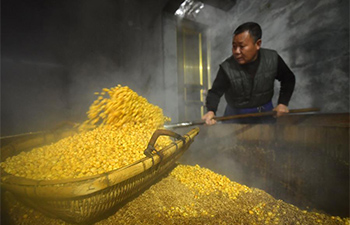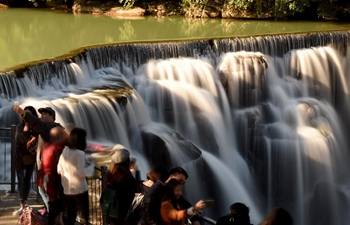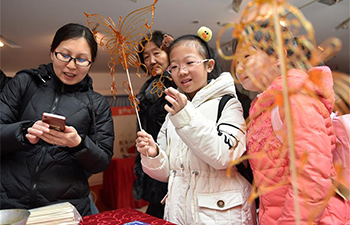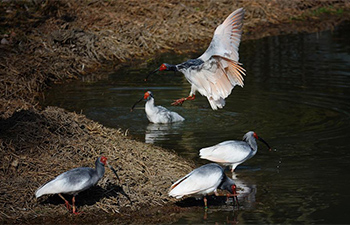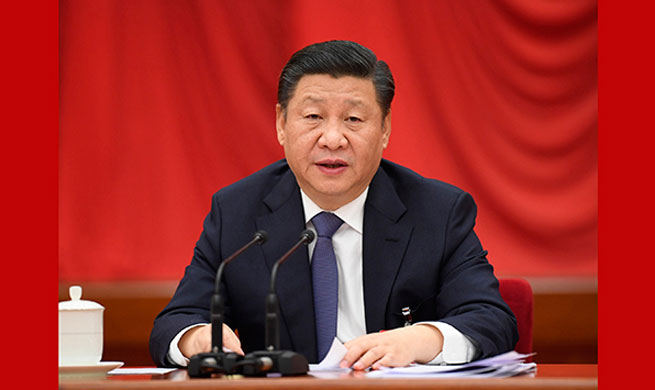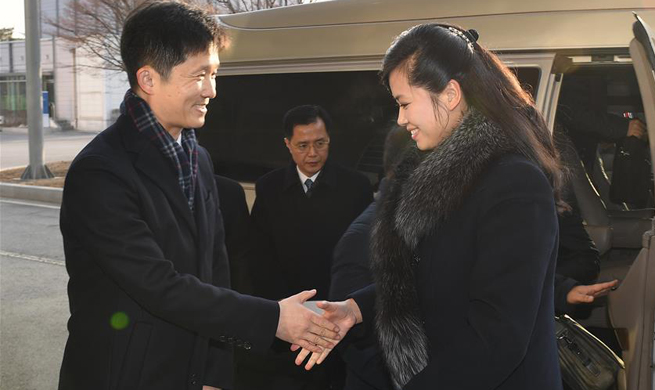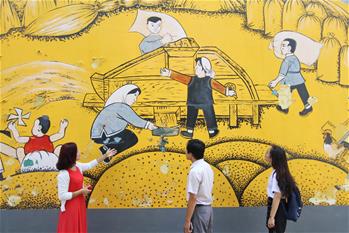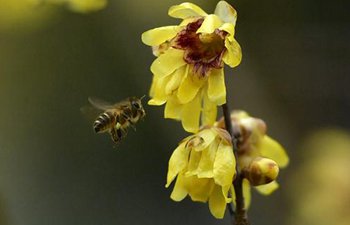ADDIS ABABA, Jan. 21 (Xinhua) -- The 30th African Union (AU) summit will kick off in Ethiopia on Monday, under the theme "Winning the Fight against Corruption: A Sustainable Path to Africa's Transformation."
The summit will start with the 35th Ordinary Session of the Permanent Representatives' Committee of the AU from Jan. 22 to 23.
The meeting will prepare the agenda of the summit with recommendations for consideration by the 32nd Ordinary Session of the the Executive Council, scheduled from Jan. 25 to 26.
The Executive Council meeting will be followed by the 30th Ordinary Session of the Assembly of the Heads of State and Government of the AU from Jan. 28 to 29.
The following is a brief introduction to the AU:
The Organization of African Unity (OAU), predecessor of AU, issued a declaration in 1999 calling for the establishment of an African Union, which was launched in July 2002.
The AU has shifted focus from supporting liberation movements, as envisaged by the OAU since 1963, to spear-heading Africa's development and integration.
The AU currently has 55 member states. Morocco rejoined the AU in 2017 after 33 years of absence.
Alpha Conde, President of Guinea, was elected in January 2017 as the chairperson of the AU for the year 2017.
Major organs of the AU include the Assembly, the Executive Council, the Pan-African Parliament and the Commission.
The Assembly, which is the supreme organ of the AU, consists of leaders of all member states. It determines the AU's policies, establishes its priorities, adopts its annual program and monitors the implementation of its policies and decisions.
The first Assembly meeting was held in Durban of South Africa in July 2002.
The Executive Council works in support of the Assembly and is responsible to the Assembly. All member states participate in the Executive Council, usually at foreign minister level.
The council coordinates and takes decisions on policies that affect member states and monitor the implementation of the Assembly's policies.
The Pan-African Parliament, headquartered in Midrand, South Africa, is intended as a platform for people from all African states to be involved in discussions and decision-making on problems facing the continent.
The Commission is AU's secretariat, comprising a chairperson, a deputy chairperson and eight commissioners responsible for peace and security, political affairs, infrastructure and energy, social affairs, human resources, science and technology, trade and industry, rural economy and agriculture, and economic affairs.
The Commission reports to the Executive Council.
The chairperson of the Commission is the chief executive officer, legal representative of the AU and the Commission's accounting officer. The chairperson is elected by the Executive Council and appointed by the Assembly for a four-year term, which is renewable once.
Moussa Faki Mahamat, the former foreign minister of Chad, was elected as the chairperson of the AU Commission in January 2017 and assumed office in March.





